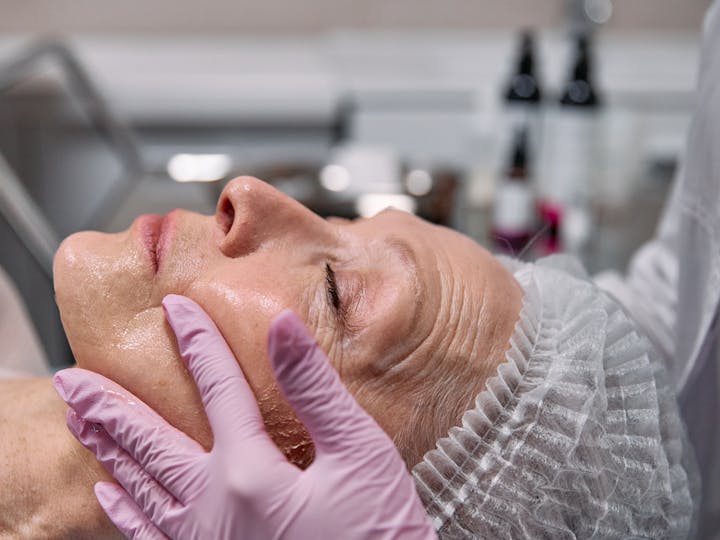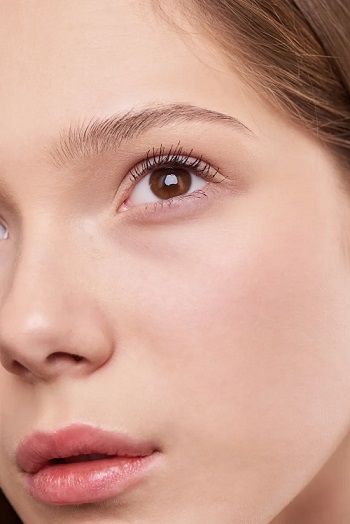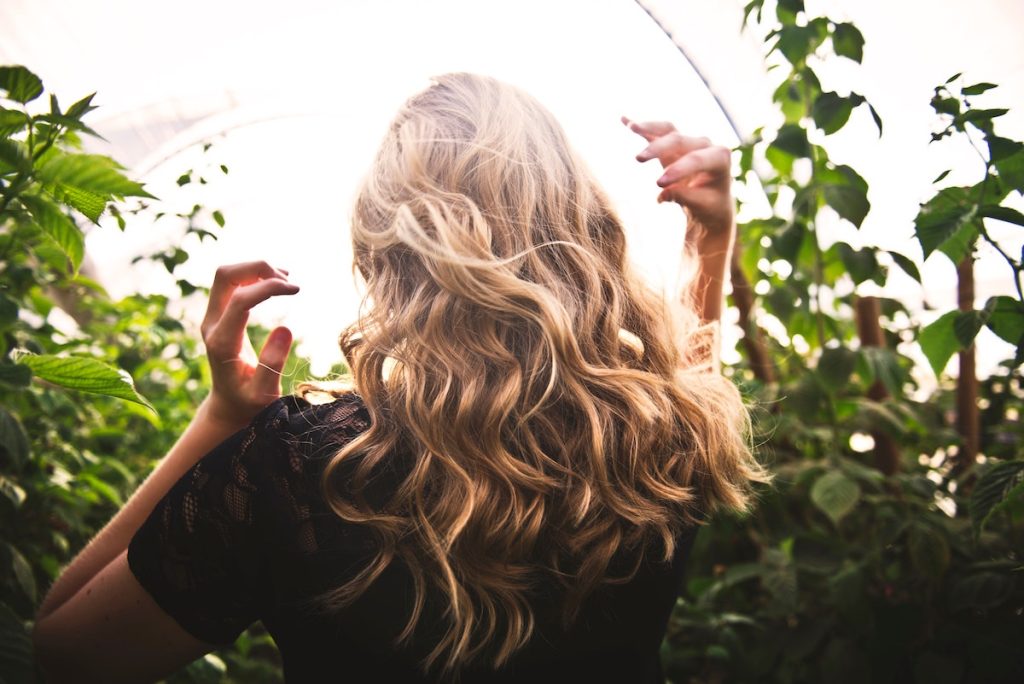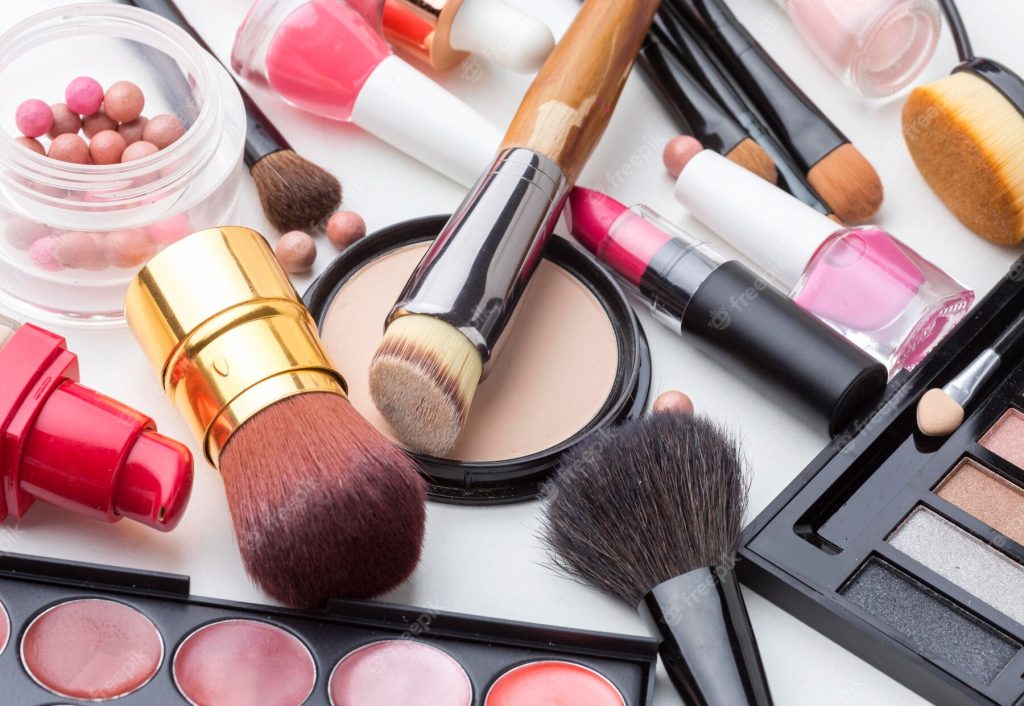When Did I Start Looking So Tired?
I remember the exact moment I realized something had changed. I was getting ready for my college roommate’s wedding, putting on makeup in the hotel bathroom, and I just… stopped. The lighting was harsh, sure, but when had my eyes started looking so small? So heavy? I’d gotten plenty of sleep. I was excited about the weekend. But the woman in the mirror looked like she’d been through something.
My mom called it “the droop.” She got it in her early fifties. I’m only forty two, but apparently genetics don’t care about fairness. Every morning became this ritual of trying to lift my eyebrows higher, experimenting with different eyeshadow techniques, anything to make my eyes look more open. I watched probably hundreds of YouTube tutorials. Nothing really worked.
The worst part wasn’t even how I looked. It was how people treated me. “Are you feeling okay?” became a constant refrain at work. My sister kept asking if I was depressed. I wasn’t. I was actually happier than I’d been in years. My kids were finally old enough to be independent, my marriage was solid, work was going well. But my face was broadcasting exhaustion to everyone around me.
The Wake Up Call I Didn’t See Coming
Last year, my daughter’s school did a mother daughter event. They surprised us by taking candid photos throughout the day and posting them in a shared album. When I scrolled through later that night, I almost cried. In every single photo, I looked angry or exhausted. My daughter looked radiant and joyful, and I looked like I wanted to be anywhere else.
That wasn’t true at all. It had been one of my favorite days. We’d laughed until our stomachs hurt. We’d made pottery together and had the best conversations. But you’d never know it from looking at those pictures. My hooded, drooping eyelids gave me this permanent scowl that had nothing to do with how I actually felt.
I started avoiding cameras after that. Then I started avoiding mirrors when I could. I knew I was spiraling into something unhealthy, but I didn’t know what to do about it. More eye cream? Better concealer? I’d tried everything at Sephora twice over.
The Conversation That Changed Everything
My best friend Sarah had gotten work done a few years back. She’d always been cagey about what exactly she’d had done, but one night over wine, I finally asked her directly. She pulled up photos on her phone, showing me blepharoplasty before and after images from her surgeon’s website, then showed me her own before photos.
I literally gasped. I’d known her during her “before” and somehow never connected that she’d looked tired back then too. The after photos, the current Sarah sitting across from me, looked refreshed and open and alive. Not different. Not fake. Just… more herself.
“I spent two years talking myself into it,” she told me. “I kept thinking it was vain or unnecessary. But then I realized I was spending an hour every morning trying to make my eyes look normal, and I was still avoiding photos with my kids. That’s not vain. That’s wanting to look like how you feel.”
Taking the Leap
I scheduled a consultation the next week. I was terrified walking into that office. What if they told me I needed a full facelift? What if they made me feel silly for even coming in? What if the cost was astronomical?
None of that happened. The surgeon was this kind, straightforward woman who looked at my face for maybe thirty seconds before saying, “Upper lids, probably a little fat repositioning on the lower. You’re a perfect candidate for blepharoplasty surgery.” She showed me on a mirror exactly what she meant. The excess skin on my upper lids. The way the fat had shifted forward below my eyes, creating those perpetual bags.
She pulled my skin taut gently with her fingers, just to show me the potential result. I almost started crying right there. There I was. The me I remembered. The me I felt like inside.
The Reality of Recovery
I won’t lie and say it was easy. The first week was rough. Swelling, bruising, sleeping elevated, looking like I’d been in a fight. My husband took amazing care of me, and my kids were surprisingly sweet about the whole thing. My son brought me ice packs without being asked. My daughter read to me when my eyes were too swollen to look at screens.
But even through the worst of the swelling, I could see hints of what was coming. My eyes looked different already. More open. The heavy, hooded look was gone.
By week two, I could wear sunglasses and go out in public. By week three, most of the bruising had faded. By week four, I stopped obsessively checking my reflection and just started living my life.
The Woman in the Mirror
Three months out now, and I still sometimes catch my reflection and feel surprised. Not because I look so different, but because I look like myself again. Like the version of me that existed before gravity and genetics teamed up against my eyelids.
I don’t avoid cameras anymore. I actually asked my daughter to take a selfie with me last week. When I posted it on Instagram, three different friends messaged me asking what I’d done. Not because I looked unnatural or overdone, but because I looked happy and rested and present.
“Did you get more sleep? New skincare routine? You look amazing!”
I’ve started being honest about it. Yes, I had surgery. Yes, it was worth every penny and every day of recovery. No, I don’t think it makes me vain or weak. I think it makes me someone who refused to let her outsides misrepresent her insides anymore.
What No One Tells You
The physical changes are real and visible. My eyes are more open. The bags are gone. I look like I actually sleep at night. But what surprised me most was how much lighter I felt emotionally. I didn’t realize how much mental energy I’d been spending on worrying about how I looked, on avoiding mirrors and photos, on wondering if people thought I was unhappy or unwell.
All that energy is freed up now. I use it for better things. I’m more present with my kids. I’m more confident at work. I took a solo trip last month and didn’t think twice about the photos. I just enjoyed myself and let someone else capture the moments.
If You’re Considering It
I can’t tell you what’s right for you. Only you know if the gap between how you feel and how you look is worth addressing. Only you know if it’s affecting your confidence, your happiness, your willingness to be photographed with the people you love.
But I can tell you this: if you’re spending significant time and energy trying to fix something with makeup and creams that really needs a different solution, it’s worth at least having the conversation. A consultation doesn’t commit you to anything. It just gives you information.
For me, eyelid rejuvenation didn’t make me look like someone else. It made me look like myself again. And that version of me, the one who looks as alive as she feels, was worth finding.




